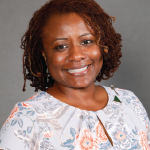The Committee on Nominations and Appointments meets to review the nominations in July, and assignments are ratified at the August board meeting. Every year, we receive more nominations than there are open positions. Thus, one challenge is to identify more volunteer opportunities.
Another challenge is the increasing workload of many healthcare providers in their regular jobs, making it more difficult to take on additional workload in the form for volunteer time. Thus, we will have to find new approaches to engage volunteers in ways that require less time and, in some cases, less travel. One approach is to develop more opportunities for special projects. This refers to volunteer activities that are needed and important, but that don’t necessarily require a sustained commitment of significant time in the way a committee assignment would. Many of us have discovered that these volunteer activities can be fun and rewarding.
If you have an interest in this kind of special project volunteer activity, you can specify this on the ACR volunteer nomination form.
Age-Related Volunteer Factors
A related, and potentially much more important issue for the ACR, is the rising tide of younger rheumatology providers entering the workforce. For this group, the attraction and available time for volunteer activities will have to be balanced against the demands of initiating an independent career in healthcare and starting a family.
The retirement of many established ACR members who came into their career as part of the baby boom generation will leave a gap in the number of members in the age range who have historically been highly engaged in volunteer activities.
This gap has significant implications for maintaining an effective volunteer workforce for our organization—and for developing its volunteer leaders. In truth, we have great interest and enthusiasm for engaging our youngest members. Rheumatology fellows in training (FIT) have been recruited to participate in a FIT Subcommittee for several years.
The Board has adopted the recommendations of a Leadership Development Task force to expand the involvement of FITs and recently graduated rheumatology providers to participate on all ACR standing committees. These young rheumatology providers provide great energy and innovative ideas to our organization and to the specialty.
Personal Experience
The enthusiasm our youngest members bring to the table is reflected in the experience of Mark Hwang, MD, the new chair of the Fellows Subcommittee:
“My first experience in the ACR was at the State-of-the-Art Clinical symposium when I was a second-year internal medicine resident. That meeting exposed me to the community at large; and its humor, enthusiasm and quality of lectures impressed me from that first metabolic myopathy slide. Further, the students and residents’ session hosted by the Fellows-in-Training Subcommittee gave very helpful advice on choosing rheumatology and fellowship applications.


